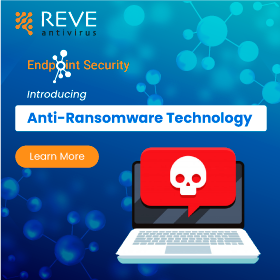This is the era of information. Ask any organization about their most valuable asset and most of them would probably reply it’s the information they possess. Now, throughout the history of mankind, most valued assets are the most craved ones, hence requiring the best of securities. There comes the importance of Information Security and introduces us to terms like Chief Information Security Officer, which, when abridged, becomes CISO.

Who is a CISO?
The Chief Information Security Officer (CISO) is a top-level executive in an organization. In general terms, CISO is an employee who has the responsibility of keeping the company’s digital assets protected. For that the responsibility of planning and implementing several security strategies might fall upon him/her. It’s common to see CISOs working in harmony with the Chief Information Officer or CIO to execute the proper information security measures of an organization.
Which Roles/Responsibilities a CISO performs?
A CISO can be considered as a guardian of information security. So, the position’s role includes everything from creating a strategy to deal with the evolving regulatory complexity, creating policies, security architecture to keep data secure to implementing processes and systems to keep cyberthreats at bay. Along with risk management abilities a CISO should also play a vital role in maintaining order & compliance.
The CISO should have a comprehensive grasp over the current cyber security world and connect that knowledge to find out the potential risks his contemporary organization faces. This includes everything from judging the risk of malware attacks and hacking to insider threats or unpatched vulnerabilities in the organization’s current system environment.
In addition to these, responding to any unwanted situation also falls under a CISO’s responsibility. In an unfortunate event of a data breach, the CISO takes a key role if not the lead in the mitigation and prompt as well as long term response.
Why Is Having a CISO Important?
If we look at the role of a CISO closely it’s easily discernible that a person holding that position needs to have a grasp over not a single but multiple expertise. Firstly, even though a CISO can come from a non-technical background, s/he must have some solid technical skillset. Then, project management, information security program management is also expected. In addition, this position also requires some sorts of financial management and risk management skills as well.
In today’s world Business information security and information assurance have been the most important asset. As the most valuable assets have always been the number one attraction for the bad guys, the incidents of cyberattacks and data theft are on the rise. This rising wave of cyberattacks has made information security a leading concern for every business or organization. There lies the importance of having a CISO as the person in this position ensures the well-being of those invaluable assets and makes life difficult for all the cyber attackers.
Why Should All Companies Have One?
As per today’s standard, here are hardly any businesses without an IT department. That shows how much of an importance the information security deserves for every business operation. And a CISO’s primary duty is to ensure the safety of that precious information. A vital point to note here is, no cybersecurity software of position (i.e. CISO) could guarantee that a cyber attack would never hit an organization’s network or device. But, a specialist could definitely reduce the possibility of such attacks and in the worst case scenario where an attack has already taken place, could work on managing the situation with fewest cost and damage.
Any kind of business information security and data security definitely require a specialized professional with extensive knowledge and skill sets regarding the technical and administrative issues related to business. The CISO handles numerous things including business information security, governance risk and compliance, information technology controls, risk management, digital forensics, disaster recovery, emergency response, network or system privacy etc.
To be honest, an organization not only requires an appropriate CISO, a Certified Chief Information Security Officer (CCISO) would even be a better option.
The demand and importance of the CISO is on the rise. A few years into the past it might be a common scenario to not have a CISO for a reputed organization. However, any organization without a CISO must be having a perilous journey through cyberspace! To say the least, the existence of a top-notch CISO is critical today.
- RaaS : The Dark Side of SaaS
- Hackers Target MOVEit Transfer’s Zero-Day Vulnerability, Emergency Patch Deployed
- How Scammers Are Utilizing ChatGPT? Few Tips To Be Safe
- World Backup Day: Why Data Backups are Important in Cybersecurity
- What is Social Engineering and How Cyber Criminals Use It
- Things To Know About Personally Identifiable Information (PII)
- What is Data Breach? Why and How It occurs? How To Prevent Data Breach


